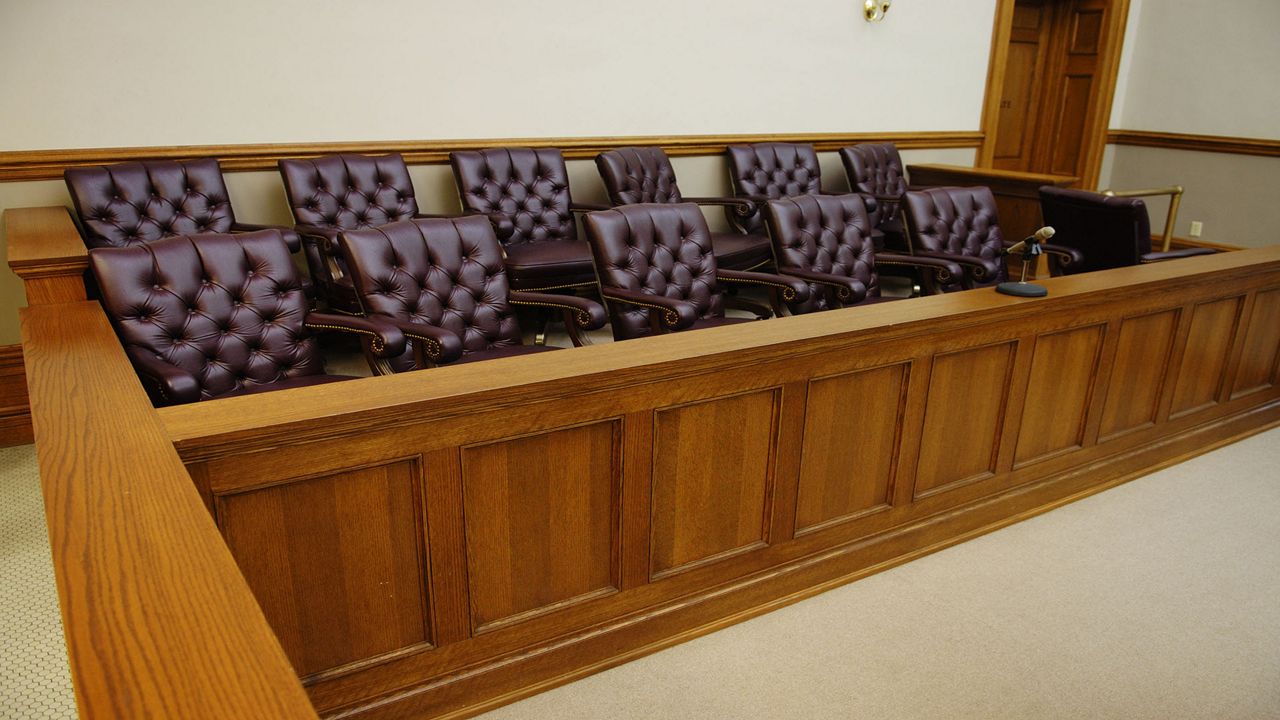Ashleigh Mills contributed to this report.
LOUISVILLE, Ky. – A decision in one of the more publicized legal cases in recent history could soon be in the hands of a Kentucky grand jury.
What You Need To Know
- Grand jury will decide whether to file charges
- Attorney general can make recommendation
- Case is unique because officers were never arrested or charged
- Process could take several weeks
Attorney General Daniel Cameron will soon present his findings to a grand jury in the March 13 death of Breonna Taylor, a 26-year-old EMT who was shot by officers from the Louisville Metro Police Department serving a no-knock warrant. The grand jury will then determine whether any of the officers involved should face criminal charges.
Members of a grand jury can ask questions, interview witnesses, and ask to see additional evidence in any case presented. Members are selected randomly and a judge typically asks questions to see if there’s any reason why a member shouldn’t serve.
Cameron retains certain authority after a case is given to a grand jury, such as how many witnesses to call and whether he wants to make a recommendation that charges are filed or are not filed.
Selecting a grand jury is historically a secretive process – not open to public observation, and only the people in the room know what happened and what was said. Grand jurors are chosen by the same selection process as regular jurors, but the main difference is the grand jury gets to decide if the charges a prosecutor wants to bring against a defendant are legitimate enough to proceed to the next step. Instead of deciding guilt or innocence, the grand jury decides whether to indict or formally charge a defendant or to not indict, which is called a “no true bill.”
An example of the process is when someone is accused of a crime, such as assault, and police officers arrive at the scene and take pictures of the victim’s injuries, interview witnesses and arrest, take to jail and charge the person who committed the assault.
That person’s assault charge is presented to a grand jury where the jurors will decide whether to indict him or her on the assault charge. During this grand jury presentation, the jurors will hear from the prosecutor, who in the Taylor case is Cameron, as well as from the responding officers to decide if they will indict the defendants with the charge recommended by the prosecutor.
In Taylor’s case, however, the would-be defendants (LMPD officers) were never arrested and are instead awaiting a grand jury decision, which is a rare occurrence but is allowed by law.
The actions of LMPD officers Brett Hankinson, Jonathan Mattingly, and Myles Cosgrove may not warrant a murder indictment, according to Kentucky law.
If Cameron asks a grand jury to indict all three officers on murder charges, the grand jury evaluates the facts of the case against the Kentucky law on murder – KRS 507.020, which says, “With the intent to cause the death of another person, he causes the death of such person or of a third person.” A grand jury could have a difficult time determining if the officers’ actions show “intent.” The grand jury could determine the officers did not cause Taylor’s death “with the intent to cause” her death and vote not to indict the officers on the charge of murder.
University of Louisville law professor Sam Marcosson said it’s not guaranteed a case such as this will always get to a grand jury, but he’s nearly certain it will with Taylor’s death being so highly publicized.
Marcosson also said it is possible the prosecutor, Cameron, puts the case before the grand jury without making a recommendation on charges and the grand jury has the authority to issue an indictment over the position of the Attorney General, although it’s more common it indicts in line with his recommendation since it will rely on the prosecutor’s expertise of the law.



